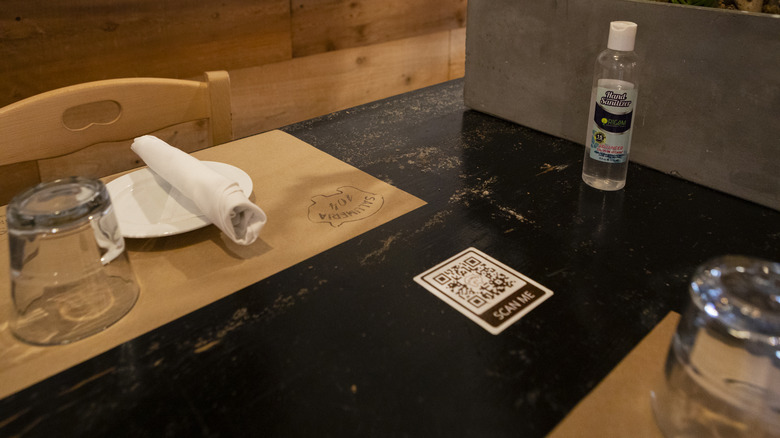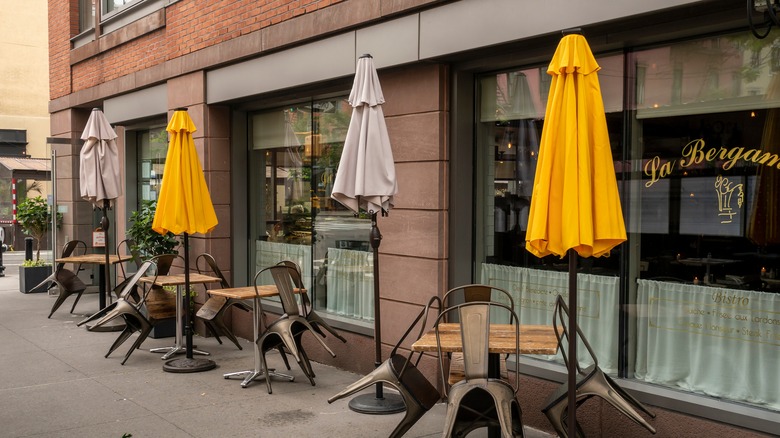How Increasing Food Costs Are Affecting Customers' Eating Habits
If you've recently found that it is much easier to get a table at your favorite restaurant, you may have just experienced another consequence of rising prices that has hurt the purchasing power of our money at gas stations and grocery stores. With inflation running at 40-year highs, it should come as no surprise that The Harris Poll found that 90% of Americans are wary about food prices, per CNBC, and that wariness is translating into fewer trips to restaurants. Black Box Intelligence tells The Wall Street Journal that because of higher prices, 3% fewer people ate at casual dining restaurants like Olive Garden, Applebee's, and Chili's between April to June of this year when compared to the same time last year.
While federal data reportedly showed an uptick in monthly restaurant spending in May, The Wall Street Journal says that polls are actually showing that people are eating out less. The data contradicts expectations that inflation might cause people to buy fewer things and shift spending in favor of services and experiences. Kevin Gordon of Charles Schwab says: "Restaurant sales have eased, travel-related spending is weakening. The weight on the consumer is becoming too much — whether because of inflation or other factors — and that's across income groups," per The Washington Post, which also cited data from restaurant booking system Open Table showing an 11% decline in restaurant bookings for the week from June 10-16, when compared to the same period in 2019.
The consumer is coming under stress
Fannie Mae chief economist Douglas Duncan echoed Gordon's concerns to The Washington Post: "The consumer is coming under stress. We see that in decreasing retail sales and rising credit card usage. We don't expect things to fall apart immediately, though. It'll be a slower decline."
To try and keep costs down, Forbes says restaurants are adopting tactics like cutting back on menu items or using pre-made meals, which require fewer people to prepare. "Scratch cooking is something we admire, and many operators aspire to, but that takes a lot of people. What we're seeing right now is a transformation to fewer human beings available to do the work," says Christine Davie Donahue of Buyers Edge Platform, which offers high-tech solutions to clients in the food service industry.
But the jury seems to be out on whether people are spending less on alcohol. While Abbey Lunney of The Harris Poll says, "Spending on alcohol has remained consistent so far," per CNBC, Restaurant Business says 68% of people surveyed appeared to be drinking less or at least buying less alcohol.

